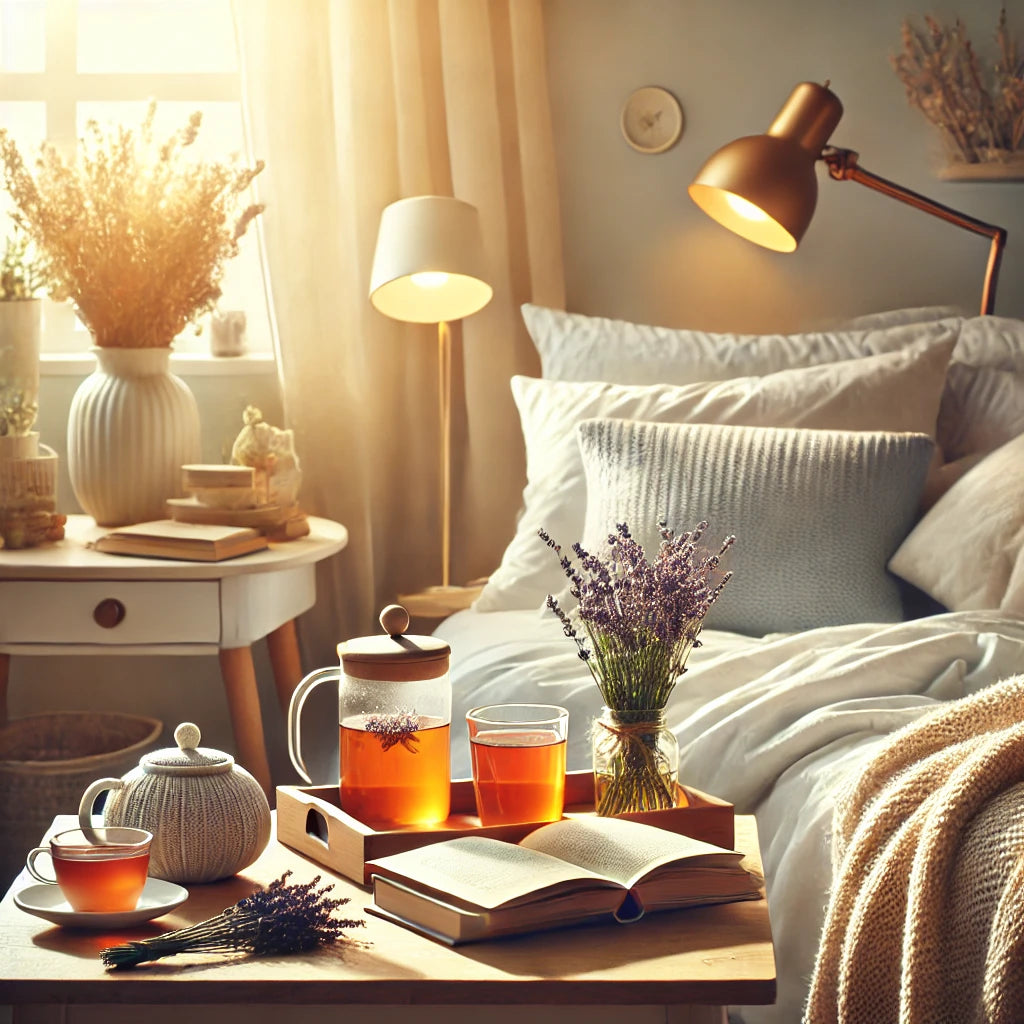
Simple hacks to sleep easier
Getting a proper night’s sleep is crucial for overall health and well-being. Sleep hygiene refers to the practices and environment that promote consistent, uninterrupted, and quality sleep. Below are some examples of how to create the perfect sleep environment to enhance your sleep hygiene.
Optimise Your Bedroom Environment
-
Keep It Cool
The temperature of your bedroom can significantly impact your sleep quality. The optimal sleep temperature is typically between 15-19°C. Keeping your room cool helps lower your body temperature, which naturally induces sleep. Consider using a fan, air conditioning, or breathable bedding to maintain a comfortable temperature. -
Control Light Exposure
Exposure to light, particularly blue light from screens, can interfere with your body’s natural sleep-wake cycle. To promote better sleep:- Use blackout curtains or shades to keep the room dark.
- Dim the lights two hours before bedtime.
- Avoid screens (phones, tablets, computers) at least an hour before bed. If you must use electronic devices, consider blue light blocking glasses or screen filters.
-
Reduce Noise
A quiet environment is essential for uninterrupted sleep. Reduce noise in your bedroom by:- Using earplugs or a white noise machine to mask disruptive sounds.
- Installing heavy curtains or using soundproofing materials.
- Ensuring your bed and bedroom are located in the quietest part of your home.
-
Choose Comfortable Bedding
Invest in a comfortable mattress and pillows that support your sleeping posture. Bedding that suits your personal preferences for firmness and material can significantly enhance sleep quality. Additionally, clean and fresh bedding can make your sleep environment more inviting. -
Declutter Your Space
A clutter-free bedroom promotes relaxation and reduces stress. Keep your sleeping area tidy and free of unnecessary items. A minimalist approach can create a calming environment conducive to sleep. A bonus tip: keep your bedroom free from electronics, including a TV!
Establish a Pre-Sleep Routine
-
Consistent Sleep Schedule
Go to bed and wake up at the same time every day, even on weekends. A consistent sleep schedule reinforces your body’s natural circadian rhythm, making it easier to fall asleep and wake up naturally. -
Relaxing Activities Before Bed
Engage in relaxing activities an hour before bedtime to signal to your body that it’s time to wind down. Some great examples are:- Reading a book
- Taking a warm bath
- Practicing gentle stretching
- Reciting and reading the Qur'an
- Doing some journaling to reflect on how your day went
-
Mindfulness and Meditation
Practicing mindfulness or meditation (the best form is Salah) before bed can help calm your mind and reduce anxiety, making it easier to fall asleep. Techniques such as deep breathing can be particularly effective.
Mind Your Diet
-
Avoid Stimulants
Caffeine and nicotine are stimulants that can interfere with your ability to fall asleep. Avoid consuming these substances at least 4-6 hours before bedtime. -
Limit Heavy Meals
Avoid large, heavy meals close to bedtime, as they can cause discomfort and indigestion. Opt for a light snack if you’re hungry before bed. -
Stay Hydrated, But Not Too Much
Drink enough water throughout the day, but limit your intake before bed to avoid waking up for bathroom trips during the night.
Incorporate Natural Sleep Aids
-
Herbal Teas
Herbal teas like chamomile, valerian root, lavender, and passion flower (my personal favourite) have natural calming properties that can help you relax and fall asleep. Drink a warm cup of herbal tea 30 minutes before bed to promote relaxation. -
Essential Oils
Essential oils like lavender, cedarwood, and bergamot can promote relaxation and improve sleep quality. Use a diffuser to disperse these calming scents in your bedroom or apply diluted essential oils to your skin.
Creating the perfect sleep environment involves optimising your bedroom, establishing a consistent pre-sleep routine, minding your diet, and incorporating natural sleep aids. By making these changes, you can significantly improve your sleep hygiene and overall quality of sleep. Remember, good sleep is foundational to your physical, mental, and emotional well-being.



Leave a comment
This site is protected by hCaptcha and the hCaptcha Privacy Policy and Terms of Service apply.